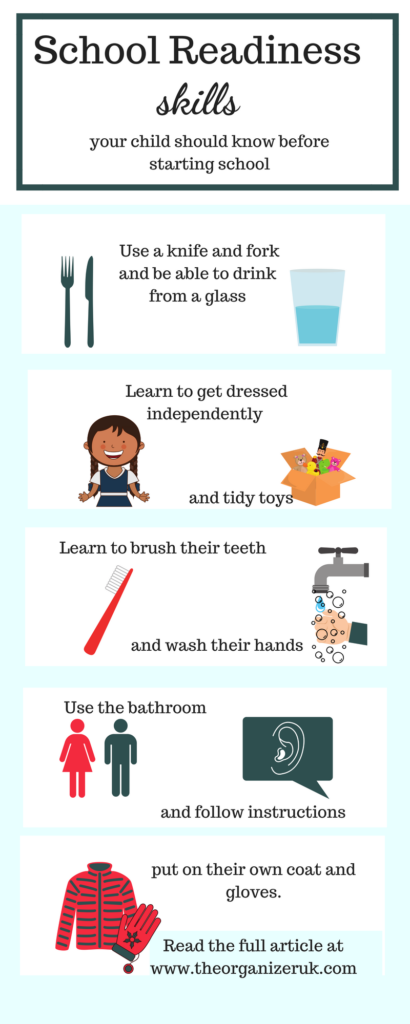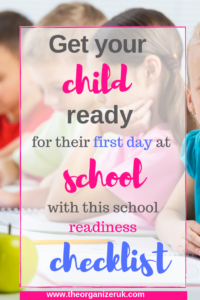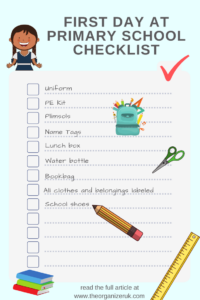Parenting
All You Need To Know About Starting Primary School
Starting primary school for the first time can be a daunting experience for both parents and children.
In this post, we will be supplying the skills you need to help your child start preparing for school activities.
We will be giving you some suggestions on how to manage the first day of primary school and get your child excited about their first day of school
We will provide you with a school ready checklist to help you get organized and to take the guesswork out of starting primary school.
Preparing for school activities: self-care
Taking responsibility self- care is a massive step in your child’s readiness for school, it teaches responsibility and gives your child an opportunity for self- improvement and higher self-esteem.
- Teaching your child to brush their teeth will be fundamental to keep your school mornings running smoothly and also teaches your child responsibility and motor skills.
- Getting dressed independently: Your child will be taking PE from the first week of entering primary school. They should be able to get dressed from head to toe by themselves. Consider this when buying a uniform. Young kids struggle with buttons, opt for zipped or over the head tunics, and elasticated waists. Velcro shirts instead of buttons, and velcro shoes or pumps rather than laces.
- Using the bathroom: there will be no one to help your child with this basic skill at school. It is important your child is potty trained, can use the toilet independently, and clean themselves properly.
- Washing hands: Your child will need to be able to wash their own hands, before meals, after messy play, and after using the toilet.
- Using a knife and fork: Your child will need to master this skill, especially if they are going to be eating school dinners. Teach your child the easiest way to cut up their food.
- Drink from a cup: It is easy to neglect this skill, with many kids using water bottles these days, however, they will need to be able to drink from a cup or glass at lunchtime in primary school.
- Tidy away toys: Right from the first day at primary school, your child will be expected to tidy up after themselves, make it easy for them to master this skill by starting with clearing plates after dinner, toys after play, and keeping their bedroom tidy. To learn how to introduce tidying up routines into your day click here
- Follow simple directions: this needs no explanation, they’ll be told what to do at school and they need to be able to follow the teacher’s instructions, remind them how important it is to listen and to do as asked the first time!
- Put on their coat and gloves: This is super important for your child to be able to do, as they will be responsible for getting their coat on at each playtime and each evening before home time. A top tip is to teach your child to put their hood on first, then put their arms through the sleeves, it’s much easier as it keeps the sleeves in place.
- Unwrapping their own food and snacks, opening lunch boxes and packets of food, opening drinks bottles, so they don’t struggle at break times.
School readiness checklist for pre-schoolers

Pin it for later!
School readiness activities for preschoolers
Learning new skills is a rocky road for little ones, we can do many things at home to prepare our children and help them when they are starting primary school.
- Learn phonics. I would say that this was the singularly most important thing I did for my kids. Phonics is the building block of all stages of reading and the quicker your children master this the quicker they will learn to read. With just a few simple songs my kids were reading before they started school. I used the jolly phonics system and just spent half an hour each day singing the songs with my kids, we coupled that with the biff and chip reading oxford tree reading books, both my kids loved this time we spent together and didn’t even realize they were learning. Once they can read their school day will become a lot easier and their writing and spelling will improve.
This post contains affiliate links. As an Amazon Associate I earn from qualifying purchases.
For the full set of Biff and Chip books, I used for helping both my kids to learn to read, click on the link below to be taken straight to Amazon.
- Practice writing and coloring, this doesn’t need to be perfect but it will help your child get skilled at holding a pencil. Practice writing your child’s name and get him to copy it until they can do it without looking.
- Practice threading, puzzles, art, and simple counting skills
- Teach your child how to use scissors and glue and how to build a model.
- Read and read to your child; this is one of the most important things you can do to help your child’s reading skills.
- Practice the journey to and from school so they get used to the route and how long it takes.
Everything to buy for a child starting primary school
- Uniform: I start shopping for school uniform in June as by the time July is over the shops stop stocking uniforms and it’s very difficult to find what you need. I tend to prefer to buy my kid’s uniform from the supermarket as I’d rather have ample supply to avoid the Sunday washing and ironing panic. The jumper with logo should be bought from an approved supplier.
for tips on how to stay on top of the laundry click here
- Name tags: I have tried the iron-on type of tags but found they soon peeled off, I’ve tried a stamper but found that it wasn’t too good on their property and soon faded on clothes. I now use stickers that seem to hold well and don’t fade. I get mine from My Name Tags you can personalize with pictures for your child, so they can easily recognize their items when getting changed for PE. Make sure every single garment they are wearing to school gets labeled, you’d be surprised what they come home with that isn’t theirs!
- PE kit and pump bag: This should include a t-shirt, shorts, and pumps. For the winter I pack my kids a sweatshirt and joggers as they still go outside for PE on freezing cold days! Again make sure all of this should be labeled including the pump bag itself!
- Bookbag: this should be supplied by your school approved store.
- Lunchbox and water bottle. , and also any Tupperware or cutlery should be labeled. In my experience, Tupperware and cutlery rarely make it back home so I would avoid packing it and would use tin foil and disposable spoons instead. I would also include a small ziplock bag in their lunchbox and teach them to put their rubbish in there unless you want a box covered in stale yogurt when they get home!
- Shoes: I spend the most money on my kid’s school shoes out of all the uniforms as their feet are growing and they are wearing their footwear for numerous hours each day.
- Coat: this needs to be thick and warm enough to withstand the bitterly cold winter playground, I usually get my kids coats from a skiing or walking shop.
Starting primary school checklist
At most primary schools, children are discouraged from bringing in their own pens pencils, and books to prevent any arguments, don’t be tempted to buy stationery or toys for your child to take to school as it is likely they will have them confiscated.
Preparing your child for primary school
There are many things you can do to make the transition to primary school as smooth as possible for your little one.
- Talk to your child about school as much as you can. Chat with your child about their day, what time they start, what time school finishes and who will pick them up, do this with a positive vibe!
- The more a child knows the less they worry, it’s a bit like us starting a new job.
- Ask your child how they feel about starting school and talk them through any worries they may have.
- Use sentences like these when chatting about school :
” You’re so lucky to be able to stay at school all day today; you’ll have so much fun.”
“Because you’re a big boy they might let you have school dinners.”
“It’s very exciting because there are so many new and exciting things to try.”
“Guess what; you’ll be able to make lots of models at the after-school club “
“Oh, how exciting its only four days till you start school, I bet you can’t wait!”
” You’re so lucky, I loved school, I wish I was going to primary school again it was so much fun!”
“I’m excited for you.”
“I can’t wait to see…….. ”
” I can’t wait to hear about………”
- Do not use words like these:
“I’ll miss you.”
“I’m sad,”
- Meet the teachers: some schools arrange a home visit where the teacher comes to your house and has a chat with your child before they start school, I highly recommend you arrange this if at all possible.
- Use your child’s teacher’s name during lots of conversations to create familiarity.
- Go to the welcome meeting: there should be a welcome meeting for you to attend school, to inform you of anything you may need to know about your child’s class.
- Make sure your child attends the transition days especially scheduled to help your child settle into their first day at primary school.
- Chat with your child about lunchtime and ask them if they’d prefer packed lunch or school dinners, talk them through what happens at lunchtime.
- Arrange a playdate if you know of another child starting in the same school.
- Make sure all your child’s clothes are fully labeled.
- Make sure your child is up to date with immunizations, eye tests, and dental examinations.
The night before your child starts primary school
- Get your child to bed super early.
- Layout uniforms including underwear and shoes, explain to your child that they need to get dressed to shoes before they come downstairs on school mornings. This will make your mornings 100% smoother, especially if you are likely to have multiple kids in primary school in future years.
- Put book bags and coats in a spot at the door and let your child know where it is. Use this spot every day so your child knows where to pick up their things before they head out of the door, this will save lost items and a major scramble to find stuff on the hectic school mornings.
On the first day of school
Hopefully, after the months of preparation, you have been doing with your child they should be confident and happy about starting school, however, its human nature to be scared. There are still some things you can do today to keep your child calm.
- Plenty of pep talk and positive reiteration about how amazing his day is going to be, when you wake up, at breakfast and on the way to school.
- Arrive early, so your child is not overwhelmed by lots of children in the playground, if you are one of the first ones there, your child will arrive in a calm, serene environment which will steadily become busier rather than arrive in the chaos of the first day back!
- Hold your child’s hand in the playground if they seem nervous, they need your support today more than ever, remember to stay positive no matter how you feel!
- Focus on your child rather than making friends with other mums or worrying about how you feel, your child needs you to be there for them. There will be plenty of time for small talk at pick up!
- When leaving your child, give them a quick cuddle and kiss then direct them in, no looking back! If your child sees you looking back with a sad face, they will sense that there is something wrong and come running back out to you and you’ll never get them back in without a fight! This will be traumatic for both you and your child and may set them off in the habit to do this every morning!
- As hard as it is, if you linger with a cuddle, they will suddenly panic and get clingy, and you’ll start their day off to a bad start.
- Do not cry! This is the hardest thing to do, but wait until you’re in the car for a sob!
- When picking your child up from school, make sure you arrive early and stand where your child can see you when he’s gathering his belongings at home time, don’t be the parent who’s kid stands terrified at the door worrying that you’re not coming!
For advice on how to create a calm school morning and a free before school checklist, click here!
If you’ve got a little one starting school this year, I hope you’ve managed to pick up a few tips from this post.
It’s going to be a harder day for you than your little one, as soon as the bell rings your child will have forgotten all about their nerves and probably won’t give you a second thought until home time!
If you feel you need help staying calm and would like to try some mindfulness techniques, click here
or head over to Help Mama Meditate for more suggestions on how to be a more relaxed parent
If you have any advice for other parents about starting school or have anything to say about this post, drop us a line below in the comments!
For suggestions about how to organise the vast amounts of school paperwork, you will be receiving in your child s book bag, click here
pin for later



